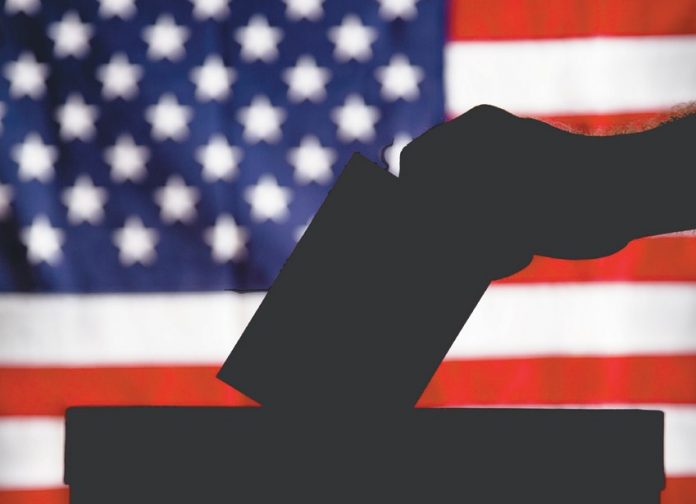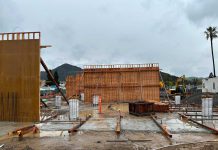A southern California group that plans to build and operate two hotels on Madrone Parkway contributed $200,000 to the campaign supporting the March 3 ballot measure that asks voters if such a project should be allowed on the property, according to financial disclosures filed at Morgan Hill City Hall.
On Jan. 24, two limited liability corporations—MH MMP Hotel and Madrone MMP Hotel—each contributed $100,000 to the campaign committee “Morgan Hill Fiscal Responsibility and Common Sense Committee In Favor of Measure A.”
The committee is sponsored by the two MMP companies, according to their campaign disclosure forms. The companies are based in the City of Upland.
Measure A asks voters if the city should amend the current land use restrictions for the Madrone Village Shopping Center to allow two new hotels—a Marriott and a Hilton—on a vacant 4.4-acre parcel. The vacant site is located at Madrone Parkway and Woodview Avenue, just off Cochrane Road.
Supporters of Measure A, including city council members, argue the hotels will provide new tax revenues paid by visitors to Morgan Hill that will fund local services. Opponents of Measure A say those new revenues are unlikely to materialize with two new hotels, and the property is better suited for a retail use such as a grocery store under its existing zoning.
The $200,000 in contributions from the MMP companies is by far the largest sum given at one time to any registered campaign for or against Measure A, according to the public filings. But the spokesman and treasurer of the campaign against Measure A said that’s a drop in the bucket compared to the profit the developer and hotel operator stand to earn if the voters approve the ballot measure.
“That is an absurd amount of money for a local election. It shows how much financial upswing there is for rezoning the land,” said Asit Panwala, a spokesman for the Morgan Hill Hotel Coalition and treasurer for “A committee Against Ordinance No. 2295.” His committee is sponsored by the hotel coalition, which consists of the owners of some of the existing hotels in Morgan Hill.
The two MMP companies that chipped in $200,000 to support Measure A are working with the current property owner to build and operate the two hotels if a majority of voters says “Yes,” said Ed McGovern, a political consultant for the pro-Measure A campaign. The companies do not currently own or operate any hotels in Morgan Hill.
The owner and developer of the property is Toeniskoetter Development, which contributed $25,000 to the campaign in 2019.
The next campaign filing that would list expenditures made with the recent $200,000 in contributions is due later this month, but McGovern said the expenses would likely include advertising on local cable television and the internet, direct mail to Morgan Hill residents, lawn signs and print advertisements.
Some of this advertising in support of Measure A has already begun, and McGovern expects it to continue until election day. McGovern said a poll conducted last year with campaign funds found that Morgan Hill residents support the new hotels on the Madrone Parkway site. He said the hotels would generate “close to $1 million” per year for the city’s general fund, which finances basic services such as public safety, parks, street maintenance and recreation.
“There is overwhelming support because it’s someone else paying it,” McGovern said, referring to the hotel patrons who pay the transient occupancy taxes (TOT) that go to the city’s general fund.
The city collects TOT funds from all hotels in Morgan Hill. The taxes are paid by hotel guests. In fiscal year 2018-19, the city collected about $2.8 million in TOT revenues. City staff project that number to go up to about $3.1 million in 2019-20, with or without the two Madrone Parkway hotels.
Fundraising continues
Panwala argued the developer and investors are motivated more by their desire to profit off their proposed hotel project than by a need for local public revenues. He suggested if the Madrone Parkway property is rezoned to allow the hotels, the land’s value will increase by at least $1 million “overnight.” That estimate is based on recent prices of comparable, similarly zoned properties in Morgan Hill, Panwala said.
Both campaigns for and against Measure A began raising and spending money in March 2019, when the hotel coalition organized a petition drive that ultimately required the city council to place the question on the March 3 ballot.
According to public filings, the hotel coalition’s campaign against Measure A received and spent a total of about $73,000 in 2019. A significant portion of these funds was spent to hire a Texas contractor to gather more than 3,000 signatures for the petition that led to the Measure A ballot.
Contributions to the committee against Measure A came largely from existing local hotel operators and owners, including Panwala’s father, who is an owner of the Comfort Inn in Morgan Hill and has contributed more than $33,000 to the campaign so far.
A hotel operator based in Cleveland, Ohio contributed $10,500 against Measure A in 2019.
Nonmonetary contributions listed on earlier campaign disclosure forms include more than $30,000 worth of hotel room stays in some Morgan Hill hotels, which agreed to house petition signature gatherers in February and March of 2019.
The committee supporting Measure A collected about $107,000 and spent about $82,000 in 2019, according to campaign disclosures.
Both committees listed numerous legal expenses on their disclosure forms. In late 2019, the hotel coalition unsuccessfully challenged the city council’s wording of the Measure A ballot, resulting in months of court proceedings and fees.
The city council first approved a zoning amendment to allow the two hotels on Madrone Parkway in January 2019. Shortly after that, the hotel coalition organized their petition drive.
On May 15, the council was presented with a certified petition asking the elected body to overturn their original decision, or put the question to the voters. The council unanimously decided to place the decision on the ballot as Measure A.








